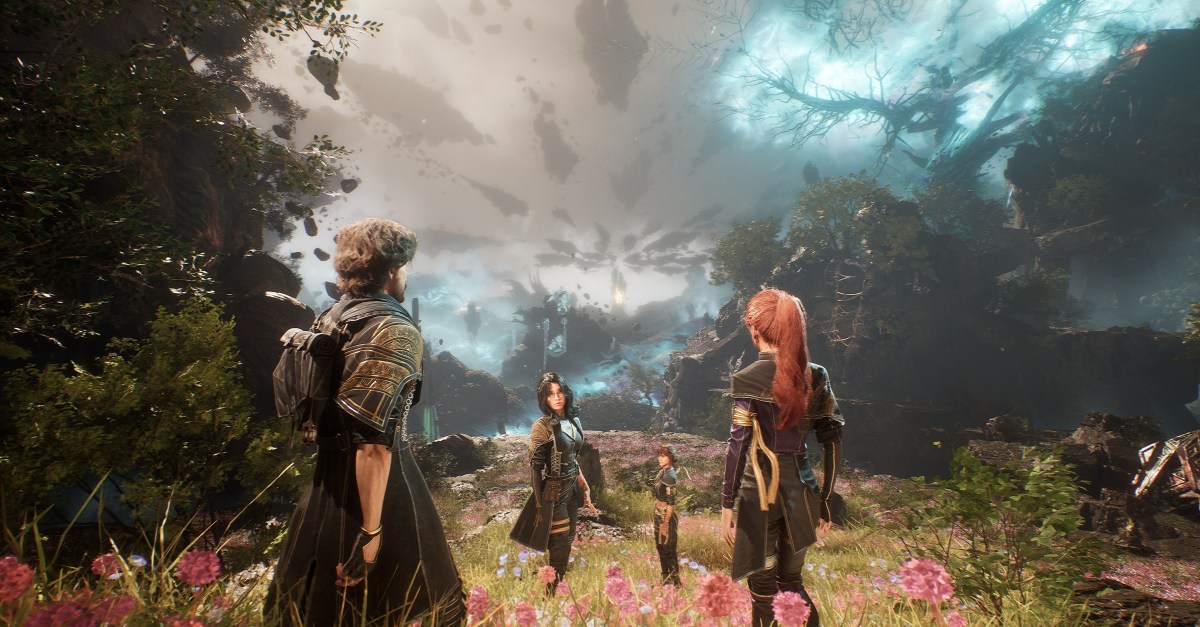Clair Obscur: Expedition 33 is my favorite game of the year so far, with an exhilarating battle system, excellent exploration, and a haunting soundtrack. But I’m not the only one who loves it: the game has become a huge hit, with more than 2 million copies sold just 12 days after its late April release. “It feels very surreal,” says Guillaume Broche, Sandfall Interactive’s CEO and creative director.
According to Broche, the game is performing “far beyond expectations” and that the team was not expecting it to “blow up” as fast as it did. “We are still in denial, basically” he says. Lead writer Jennifer Svedberg-Yen adds, “I’m going to wake up tomorrow and this is all a joke, right?”
A major part of Expedition 33’s success is its gripping story. It kept me coming back to the game every moment I could just to see what happened next. The opening hits you with a gutpunch. Playing as Gustave, voiced by Daredevil’s Charlie Cox, you learn about the tragic circumstances of the world, its characters, and the annual “Gommage” that makes everyone of a certain age disappear in a flurry of petals when a giant being called the Paintress paints a new, lower number on a giant monolith.
Gustave is one of the next Expeditioners that will strike out and attempt to take down the Paintress, and that team also includes Maelle, a teenager who he is responsible for. But he also loses an ex, Sophie, to the Gommage after the Paintress paints a 33.
It’s a powerful, emotional opening, and it got me interested in Expedition 33 right away. But there was a key scene later on that shifted the game’s story from good to great for me — and I got to talk to Brocke and Svedberg-Yen all about it.
Spoilers ahead. Don’t scroll past this picture unless you want to read about a major plot development.

If you chose to keep scrolling, the moment I’m talking about is at the end of Act 1.
The mysterious white-haired man who massacred much of Expedition 33 earlier in the story appears after an intense boss fight. Without warning, the man stabs Gustave with a gigantic sword, and after a brief battle, stabs him again, killing him — and all right in front of Maelle, who is trapped in a dome of magical energy that renders her helpless.
When it happened in my playthrough, my jaw was on the floor. Expedition 33 had so far portrayed Gustave as the protagonist, and I figured he had the plot armor to make it all the way to the end so that he could get closure on losing Sophie. (Heck, they cast Charlie Cox, who also plays a Marvel superhero, to voice him!) But within hours of the game’s opening, Gustave was gone.
“It’s where the story needed to go,” Svedberg-Yen says. For the narrative and themes that the team was going for, “it’s what was most organic.”
“One of the main themes of the story is very obviously grief,” Broche says. In order to make a game about grief feel true, the team wanted players to “go through the horror that the characters are going through,” he adds. “It just made sense to inflict the pain on the player as strongly as the characters receive.”
Broche says that actually playing as the character creates a deep link and attachment. “Losing that is the hole that the characters in the game experience basically every year with the Gommage, and it’s something here that just felt true to the game and the narrative.”
The scene is brilliantly crafted to make the death feel impactful. After the boss fight and before the white-haired man’s appearance, I had relaxed — I figured I would get a nice, post-fight cutscene of celebration before moving on to the next thing. But the surprise of what happened next and the powerful performances from the motion capture actors and the voice actors made the scene memorable and powerful.
I was particularly struck by the killing blow: after the white-haired man stabs Gustave, the game goes into slow motion to pause on that moment, on Maelle’s horror, and on Gustave’s armband emblazoned with “33,” which Sophie put on him shortly before she Gommaged.
To me, it felt reminiscent of Aerith’s death in Final Fantasy VII, but Broche and Svedberg-Yen say that wasn’t intentional. “If people find some similarities, it’s not actually conscious from us,” Broche says. (Svedberg-Yen said she hasn’t actually played FF7, so I apologized for spoiling Aerith’s death.)

Gustave’s final words are powerful, too: “For those who come after, right?” It’s a motto used by the Expeditioners to acknowledge the purpose and futility of their mission, and throughout act one, it becomes something of a catchphrase for Gustave. But in the moments before the killing blow, he seems to know what’s coming, and he says it as he gives a heartbreaking look to Maelle — who will have to grapple on her own with whatever comes after — before making his final attack. “That’s his whole character,” Broche says of the line.
The motto itself has broader meaning, too. “We really wanted to hone in on the idea that they are part of a larger tradition, that they are one expedition in a chain,” Svedberg-Yen says. “So we really wanted to figure out a way to encapsulate that.”
Like the rest of Expedition 33’s most impactful moments, what makes the scene work is a combination of elements — writing, performance, music, and more — that merge together to create moments I can’t stop thinking about, even when they don’t feature a dramatic and unexpected death. “When we think about the storytelling, it’s all the teams together — that whole package — that really made it come alive,” Svedberg-Yen says.

